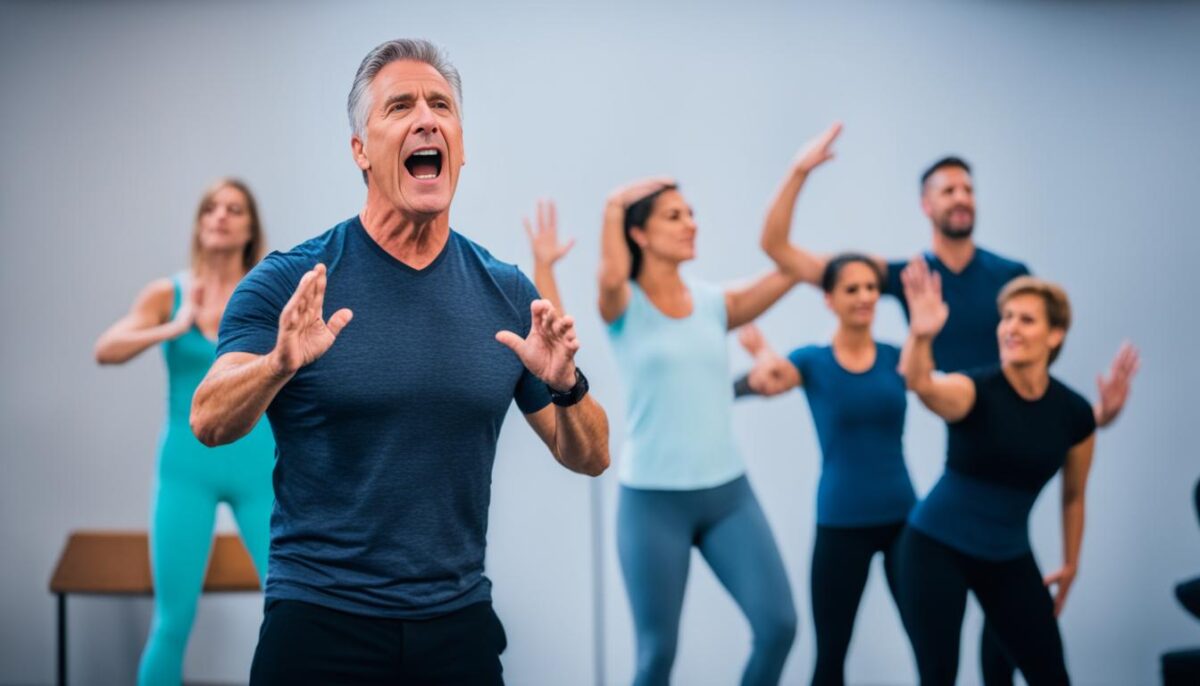In this exclusive interview, we had the privilege of speaking with Gary Catona, known as the Ultimate Voice Builder. Join us as we delve into the world of vocal mastery and uncover the secrets behind Gary’s renowned techniques.
The Journey of Gary Catona in Voice Building
In our quest to uncover the secrets behind vocal mastery, we couldn’t ignore the incredible journey of Gary Catona, the renowned Ultimate Voice Builder. Let’s take a closer look at how Gary’s passion for voice building unfolded, shaping him into the expert he is today.
Gary Catona’s journey began with a deep fascination for the human voice and its potential for transformation. As a young musician, he marveled at the vocal abilities of legends like Frank Sinatra and dreamed of unlocking similar power and expressivity in his own voice.
Driven by this keen interest, Gary delved into years of research, studying the intricacies of vocal cords and exploring various techniques to enhance vocal capabilities. Along this voyage of discovery, he encountered mentors who would shape his understanding and guide him towards developing his unique approach to voice building.
“The voice is an incredible instrument, capable of conveying immense emotions and connecting individuals on a profound level. I dedicated myself to uncovering the secrets behind unlocking its true potential.”
Building upon his knowledge and experiences, Gary introduced his breakthrough techniques to the world. His journey involved blending traditional vocal training with innovative approaches, resulting in a comprehensive voice building system that has revolutionized the way singers, actors, and public speakers perceive and develop their voices.
Over the years, Gary Catona has worked with a diverse range of clients, including Grammy-winning artists, Hollywood celebrities, and professional speakers. His expertise and techniques have consistently yielded transformative results, allowing individuals to tap into their full vocal range and unleash their true vocal prowess.
The Impact of Gary Catona’s Journey
Gary Catona’s journey in voice building has left an indelible mark on the world of vocal mastery. Through his dedication and passion, he has empowered countless individuals to discover and harness the full potential of their voices. From awe-inspiring singers to confident public speakers, Gary’s techniques have transformed lives and elevated vocal performances to new heights.
Stay tuned as we delve deeper into the secrets of vocal mastery, uncovering the techniques and exercises employed by Gary Catona to strengthen vocal cords, expand range, and unlock the true power of the human voice.
Unveiling the Secrets to Vocal Mastery
Here, we dive into the secrets behind Gary Catona’s approach to vocal mastery. Discover the techniques and exercises he employs to strengthen vocal cords, enhance range, and improve overall vocal performance.
One crucial aspect of vocal mastery is understanding the importance of proper breath control. Gary Catona emphasizes the significance of diaphragmatic breathing, a technique that allows singers and speakers to achieve a more powerful and controlled voice. By engaging the diaphragm and filling the lungs with air, individuals can develop better vocal projection and sustain notes effortlessly.

Another key component of vocal mastery lies in mastering voice resonance. Gary Catona introduces specific exercises that help individuals resonate sound in the ideal areas of their vocal tract, resulting in a fuller and richer tone. These exercises target the different resonators within the body, such as the chest, throat, and nasal cavities, allowing singers and speakers to unlock their maximum vocal potential.
To further refine vocal technique, Gary Catona incorporates exercises that focus on vocal agility and flexibility. These exercises help singers and speakers develop the ability to navigate through various vocal registers smoothly, allowing for seamless transitions and expanding vocal range. Through consistent practice, individuals can develop the dexterity needed to effortlessly hit high notes and explore the full depth of their vocal capabilities.
Moreover, Gary Catona’s approach to vocal mastery includes exercises that strengthen the vocal cords themselves. By utilizing a combination of vocal exercises and targeted vocal workouts, individuals can build the necessary muscular strength and coordination in their vocal cords. This results in improved vocal control, reduced strain, and increased endurance, allowing for heightened vocal performance.
The Benefits of Vocal Mastery
The benefits of mastering vocal technique and following Gary Catona’s methods extend beyond just singers and speakers. Anyone seeking a stronger and more confident voice can benefit from these practices. The techniques taught by the Ultimate Voice Builder can help individuals in various professional fields, such as public speaking, acting, broadcasting, and teaching, to name a few. A powerful and well-controlled voice has the potential to captivate audiences, command attention, and enhance overall communication skills.
In conclusion, Gary Catona’s secrets to vocal mastery encompass a holistic approach that includes strengthening the vocal cords, improving breath control, mastering voice resonance, and developing vocal agility. By implementing these techniques and exercises, aspiring singers, public speakers, and individuals from all walks of life can unlock their full vocal potential and achieve a stronger, more confident voice.
Transforming Lives through Voice Building
In this final section, we are thrilled to share the incredible impact of Gary Catona’s voice building methods on individuals from diverse backgrounds. Through testimonies and success stories, we witness the remarkable transformations in their vocal abilities achieved under Gary’s expert guidance.
These inspiring accounts demonstrate the power of voice transformation. From aspiring singers finding their unique voice to public speakers gaining confidence and charisma, Gary’s techniques have yielded life-changing results for countless individuals.
One success story comes from Sarah, a timid individual with a burning desire to sing but fear holding her back. After working closely with Gary, Sarah not only developed vocal mastery, but she also unveiled a newfound self-assurance that permeated every aspect of her life. Her voice transformation became the catalyst for personal growth, paving the way for Sarah to pursue her dreams with unwavering determination.
These testimonials echo the resounding success achievable through Gary Catona’s extraordinary voice building methods. They serve as a testament to the effectiveness and life-altering potential of these techniques. Prepare to be captivated, inspired, and motivated by the incredible stories of individuals who discovered their true voice and transformed their lives in the process.

